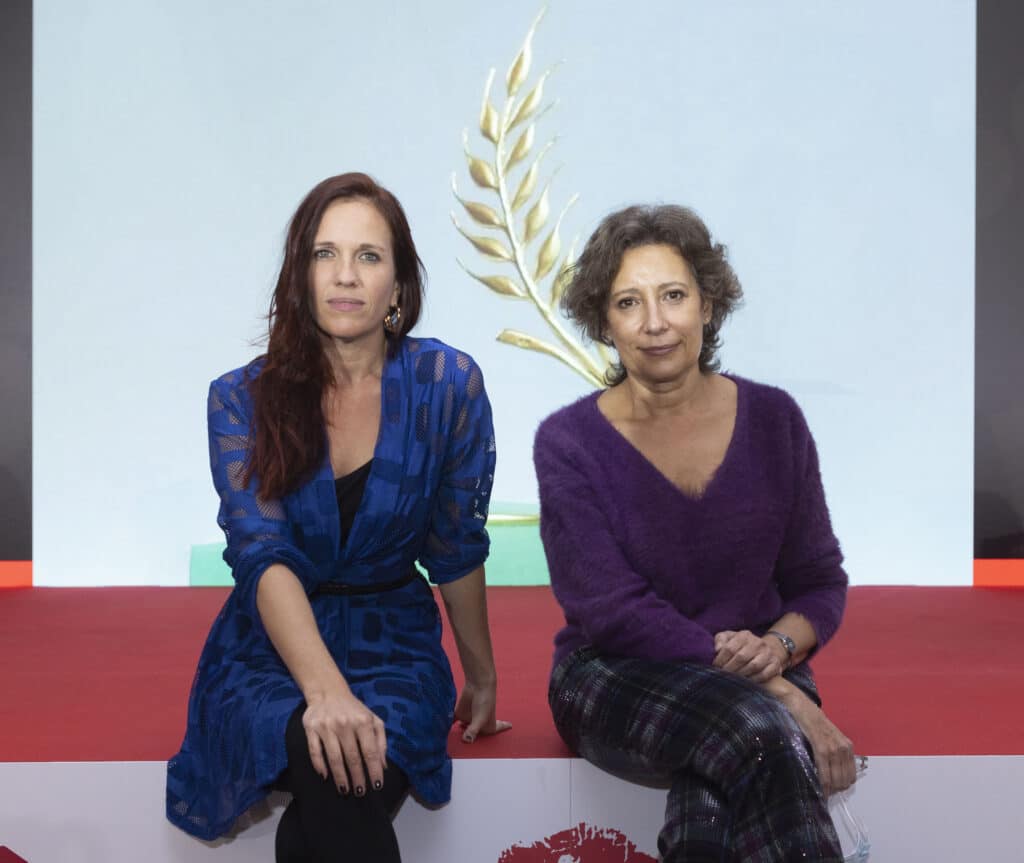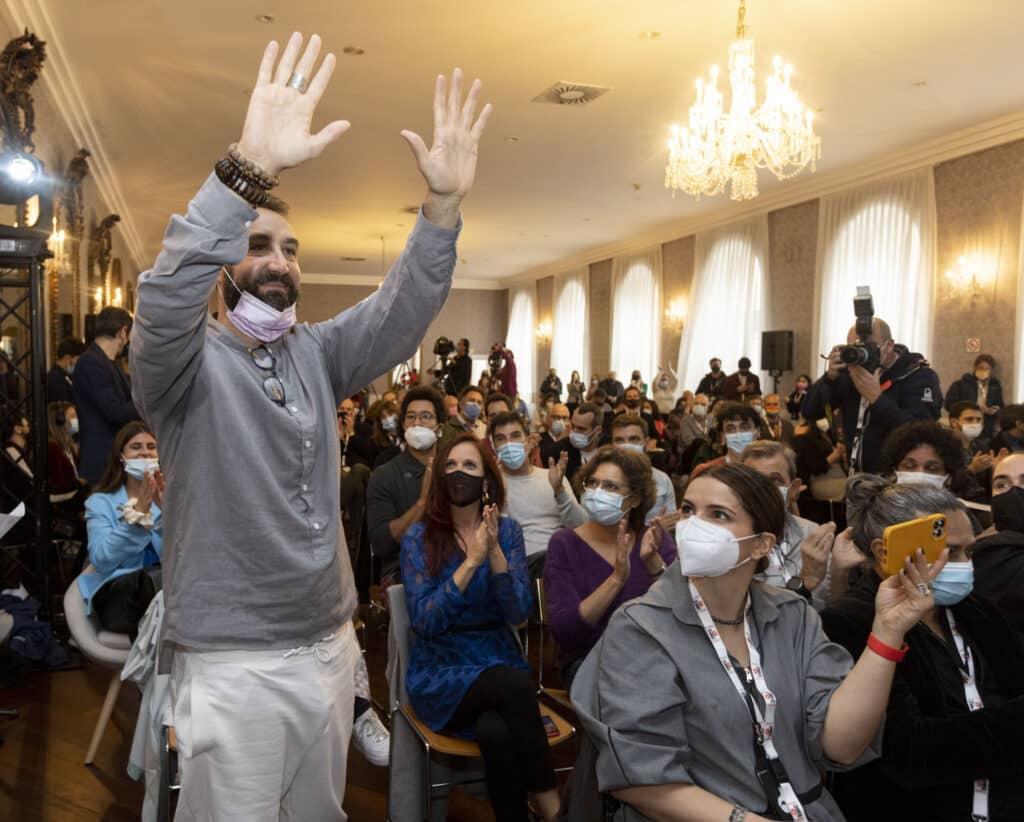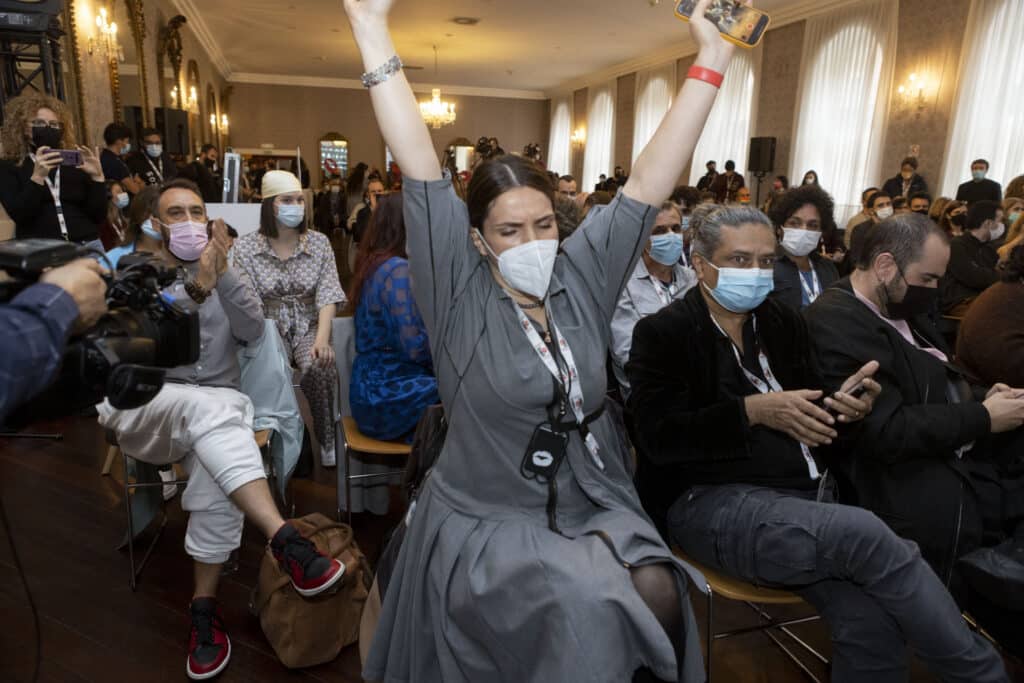The Hall of Mirrors at Calderón Theatre hosted today Saturday, October 30th, 2021, a press conference with several of the winners of the 66th edition of the Valladolid International Film Festival, Seminci, in which they shared their impressions shortly after the reading of the awards. Among many of them was Pan Nalin, director of the Golden Spike Last Film Show, who considered it “an honour to be part of the 66 years of history” of the Film Week.
“All the awards this film is receiving, from Tribeca to California, are incredible and show that you can still believe in cinema and in the experience in cinemas,” he declared. Significantly, the high point of his film is a tribute to filmmakers, and the director wanted to establish a comparison with Seminci itself, “which is also a film festival.”

A constant reflection among all the award winners was that, apart from the awards and acknowledgements, it is important for the films to invest in distribution. This was expressed by Neus Ballús and Miriam Porté, director and co-producer of the Silver Spike Sis Dies Corrents [Odd-Job Men], who, although they are grateful for the incentives, feel that “there is still a long way to go” Faced with the award, they consider it a joy “not to have given up at those moments during the shoot when there was a feeling that we were being too ambitious,” and they celebrated having taken a risk with “a film about real people, with humour, which shows that we are capable of understanding each other and coexisting with our differences.”

The multi-award-winning Fred Baillif was another of those deeply grateful for his awards at Seminci, which include a special mention for the performers in La Mif [The Fam] and respective awards for editing and best direction: “It was a great surprise and an enormous reward for having been able to transmit in a language for young people everything you see in the film,” he declared, without wanting to stop sharing the credit with the “wonderful” actresses he has worked with: “As a man, it’s time to make feminist films.”

And speaking of actresses, no one is more appropriate to speak than the winner of the best actress award, Yllka Gashi for Hive, by Blerta Basholli: “It is an honour and a joy after ten years working on a film whose story can be transferred to anyone who strives to find tools to overcome their suffering.” The interpreter described as a “great responsibility” the opportunity to “tell a true story of women who are capable of taking control of their own destiny, who are not portrayed as victims.”
The quota of short films awarded in the Official Section was covered by the Silver Spike awarded to Mi Última Aventura [My Last Adventure], by the Argentineans Ramiro Sonzini and Ezequiel Salinas, who placed their film in “the tradition of the most classic storytelling cinema” and who accepted their award as “a help to continue working and to keep improving”.
Other Winners of the 66th Seminci
Apart from the winners of the International Jury, different winners of the 66th edition of the Valladolid Film Week were also able to share their experiences with the audience. This was the case of Adrián Silvestre, director of the Rainbow Spike award-winner Sedimentos [Sediments], who hoped that this kind of award would contribute to continue knowing “the story of these six fantastic women.” Cyril Dion, director of the wonderful Demain [Tomorrow], who was recognised at Seminci this year for his latest work, Animal, was also thankful for his Green Spike.

Serhat Karaaslan, winner of the award for Best Foreign Short Film for The Criminals, said that his film was his personal story: “It wasn’t easy to tell, although now that the film has been made it’s easier to talk about it.” Representing Time of History, second prize winner Mariano Llinás Corsini interpreta a Blomberg y Maciel [Corsini Plays Blomberg and Maciel] stressed the importance of the financial value of festival awards (“Although it doesn’t sound elegant, although it’s not the most spiritual thing, it is what comforts us the most once we leave the theatre”), and described his film as “a documentary comedy with the need to make people laugh, working with the bitterest parts of the world.”
Also the winner of the Castilla Leon in Short Film award, Alberto Velasco (El Rey de las Flores [King of the Flowers]), admitted how excited he was to receive this recognition and his intention to “dignify the outcasts who live in the world and ask for respect.”



























![Logo Foro Cultural de Austria Madrid[1]](https://www.seminci.com/wp-content/uploads/2024/09/Logo-Foro-Cultural-de-Austria-Madrid1-300x76.jpg)








